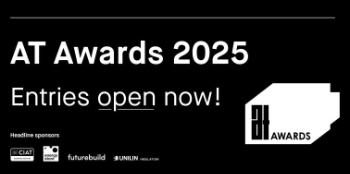Generalist vs Specialist learning - debate
On 15 November 2016, Designing Buildings Wiki attended a debate considering what sort of education is best for tackling the challenges of sustainability in the built environment – ‘generalist’ or ‘specialist’? Is it more beneficial to have the deep and narrow knowledge that comes with the specialisation of disciplines or the shallow and broad knowledge that comes from general cross-disciplinary learning?
The debate was organised by the Sustainable Communities Institute at London South Bank University (LSBU), the Chartered Institution of Building Services Engineering (CIBSE), The Edge group, and the All-Party Parliamentary Sustainable Built Environment Group (APSBEG).
The chair Nigel Tonks, Buildings London Leader for Arup, introduced the debate, explaining how in his professional career he had witnessed the emergence of evermore specialist disciplines. Project meeting tables that 15-20 years ago would have had the core professionals (architect, engineer, quantity surveyor, and so on) sat around them, can now include 30 or more professionals of various disciplines.
Arguing on ‘Team Generalist’, Paul Tymkow, Director of Learning and Knowledge at Hoare Lea, began by saying that generalists are able to see things from all angles, communicate from wider perspectives and rise above inter-disciplinary concerns.
He cited the example of building services engineers forever bemoaning the lack of adequate testing time. If others could see this testing is essential, they would champion it as well as their own field of expertise and the project as a whole would benefit as a result.
In terms of education, he took the view that there should be more encouragement towards CPD. This may, he said, lead to a rethinking of traditional role boundaries, and indeed all disciplines are currently in motion. The key question is how do we re-educate and rethink disciplines to be successful at what we want to achieve?
On the side of ‘Team Specialist’, Alex MacLaren, Assistant Professor at Heriot Watt University, attacked the over-used buzzword of the ‘T-shaped professional’ to illustrate a depth of specialist knowledge with a breadth of superficial knowledge. She suggested attitude is key, rather than knowledge, and that everyone needs to be technical, specialist and with the right attitude to collaborate with others.
She also warned of the dangers exponential possibilities of technology such as Google Analytics and Big Data can pose by citing Alexander Pope’s ‘a little knowledge is a dangerous thing’. A small error at the broad, superficial level could have hugely dangerous ramifications for a project. She also said that as the modern workforce works longer, further training and education will play an important role in specialising to greater depths.
On ‘Team Generalist’, Robert Schmidt III, senior lecturer at Loughborough University, extolled the virtues of the American education system as being more generalist, with more manoeuvrability that allows students to avoid getting stuck on a particular trajectory. He argued that real problems don’t exist in silos but are cross-discipline, with the challenge being for people to synthesise between environments and fields. Depth alone, he said, is equally as dangerous as a little knowledge.
He also presented the memorable ‘well-rounded man’ quote from Robert Heinlein that concludes ‘…specialisation is for insects’.
Continuing the argument, Satheesh Jacob, Head of Excellence for Ramboll, said that when dealing with a topic, it is necessary to understand the seriousness of it, and that if faced with a serious health issue, for example, you would want to see a specialist rather than a General Practitioner.
He said that it was time sustainability was treated as a serious profession, with specialists who have the right collaborative attitude. He argued that a lot of what stymies innovation is the obsession with process and trying to relate through BIM and other means.
The debate was suitably lively with the audience voting in favour of the Specialists by 54% to 46%. Although as one audience member put it, ‘the problem with the construction industry is that the generalists are far too narrow and the specialists are far too shallow!’
[edit] Find out more
[edit] Related articles on Designing Buildings Wiki
- Construction industry knowledge standard.
- Consultant team for design and construction.
- Edge Debate 71 - Can decentralisation solve the housing crisis?
- Modern Built Environment Knowledge Transfer Network.
- National Specialist Contractors' Council.
- Specialist contractor.
- The Edge Debate 74: Building better places - who cares?
Featured articles and news
The Architectural Technology Awards
The AT Awards 2025 are open for entries!
ECA Blueprint for Electrification
The 'mosaic of interconnected challenges' and how to deliver the UK’s Transition to Clean Power.
Grenfell Tower Principal Contractor Award notice
Tower repair and maintenance contractor announced as demolition contractor.
Passivhaus social homes benefit from heat pump service
Sixteen new homes designed and built to achieve Passivhaus constructed in Dumfries & Galloway.
CABE Publishes Results of 2025 Building Control Survey
Concern over lack of understanding of how roles have changed since the introduction of the BSA 2022.
British Architectural Sculpture 1851-1951
A rich heritage of decorative and figurative sculpture. Book review.
A programme to tackle the lack of diversity.
Independent Building Control review panel
Five members of the newly established, Grenfell Tower Inquiry recommended, panel appointed.
Welsh Recharging Electrical Skills Charter progresses
ECA progressing on the ‘asks’ of the Recharging Electrical Skills Charter at the Senedd in Wales.
A brief history from 1890s to 2020s.
CIOB and CORBON combine forces
To elevate professional standards in Nigeria’s construction industry.
Amendment to the GB Energy Bill welcomed by ECA
Move prevents nationally-owned energy company from investing in solar panels produced by modern slavery.
Gregor Harvie argues that AI is state-sanctioned theft of IP.
Heat pumps, vehicle chargers and heating appliances must be sold with smart functionality.
Experimental AI housing target help for councils
Experimental AI could help councils meet housing targets by digitising records.
New-style degrees set for reformed ARB accreditation
Following the ARB Tomorrow's Architects competency outcomes for Architects.
BSRIA Occupant Wellbeing survey BOW
Occupant satisfaction and wellbeing tool inc. physical environment, indoor facilities, functionality and accessibility.
























